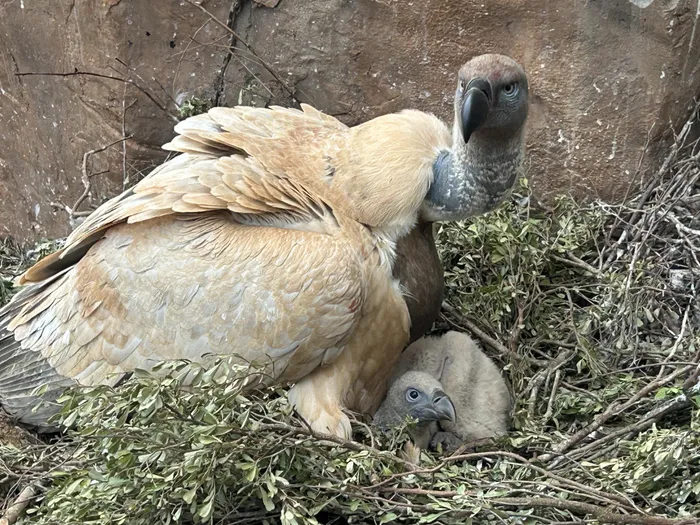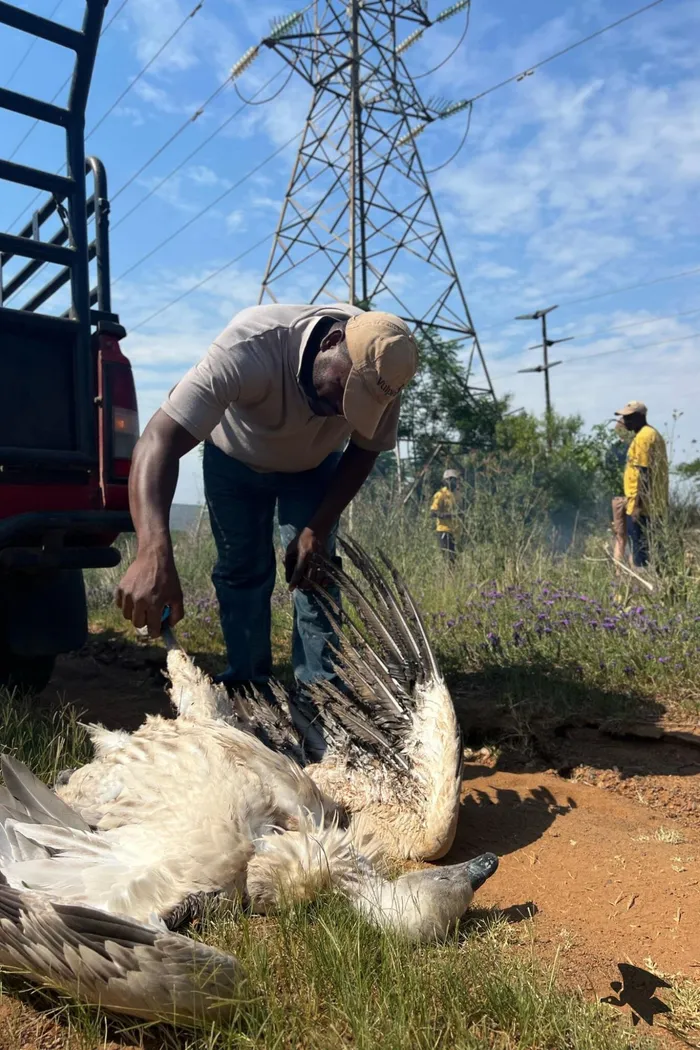Celebrating vultures: the forgotten giants of the African skies
Vultures face an uphill battle for survival
Vultures turn death into life transforming what is lost into something that sustains us all. But they are disappearing. In some regions, populations have crashed by 95% in just three decades. This International Vulture Awareness Day, Vulpro confronts a harsh reality: without immediate action, these irreplaceable guardians of our ecosystems will vanish within our lifetime.

As vulture populations decline, remembering these gentle giants becomes vital, not just for the species but for the delicate balance that keeps our ecosystems healthy and communities safe. Their quiet service deserves our loudest advocacy.
Image: Supplied
Few creatures perform such a vital yet misunderstood role as the vulture. These prehistoric-looking raptors, with their imposing wingspans and weathered faces, serve as Africa's silent guardians, aiding in the prevention and spread of diseases like anthrax, botulism, and rabies that would otherwise devastate both wildlife and human communities. Without their swift and efficient disposal of carcasses, our landscapes would become breeding grounds for pathogens, and populations of less efficient scavengers like feral dogs and rats would surge, bringing their own health risks.
Yet despite their crucial ecological service, vultures face an uphill battle for survival. Many of the large African vultures only reach sexual maturity at seven years old, laying just one egg per year. Even in ideal conditions, survival rates hover around 5%. Combined with human threats like poisoning, powerline collisions, and hunting for traditional medicine, it's clear why we need to pay more attention to the crisis.
Across South Africa, 160 vultures are sold annually for traditional medicine, with people seeking claws, bones and skulls believing they possess clairvoyant powers. This demand drives destructive harvesting, particularly poisoning, which can wipe out dozens of birds in a single event.
At the forefront of vulture conservation stands Vulpro, an organisation that has revolutionised how we approach the protection of these remarkable birds. Since 2007, they have pioneered innovative conservation methods through their world's largest African vulture captive breeding programme. What sets their approach apart is their exclusive use of non-releasable birds for breeding, many of whom are victims of energy infrastructure collisions.
Kerri Wolter, Vulpro's CEO, explains the profound gentleness hidden beneath their intimidating exterior: "You have these big dinosaur, prehistoric type birds, and you would never consider that they would gently incubate an egg without crushing it. They're so incredibly gentle, and to me, that is just a beautiful message as to how terrifying these birds can look and seem, and yet they are very gentle beings and peaceful beings."

A vulture that died in a powerline collision
Image: Supplied
This gentleness extends to their breeding behaviour. These monogamous birds often compete for parenting responsibilities, fighting over who gets to incubate eggs or tend to chicks during the gruelling 54-day incubation period. Through sophisticated techniques like double-clutching and meticulous record-keeping, Vulpro has successfully bred more than 24 chicks this season alone at their Shamwari facility, representing hope for a species teetering on the brink.
The organisation's holistic approach recognises that conservation success requires more than protective measures, it demands genuine partnerships with local communities and a shift in how people perceive these misunderstood creatures.
There's so much more to vultures than meets the eye. Here are some extraordinary aspects of these ancient creatures that showcase why they deserve our admiration and protection:
- In ancient Egypt, the vulture was revered as a maternal symbol. The goddess Nekhbet, often depicted as a vulture, was a protector of the pharaoh and a symbol of motherhood, care, and rebirth.
- Due to their slow, deliberate flight and ability to wait patiently for hours over a carcass, vultures symbolise patience, vigilance, and the idea that endurance leads to eventual reward.
- They have incredible eyesight, allowing them to spot a carcass from over 4 kilometres away while soaring high in the sky.
- Their unique, hooked beak design are perfectly adapted to tear through tough hide of dead animals swiftly.
- Their digestive system produces extremely potent acids, which destroy any bacteria or viruses present in their food.
- The oldest known vultures date back over 10 million years, making them some of the Earth's ancient avian survivors.
Show your support by donating to Vulpro. For more information visit www.vulpro.com
Related Topics: